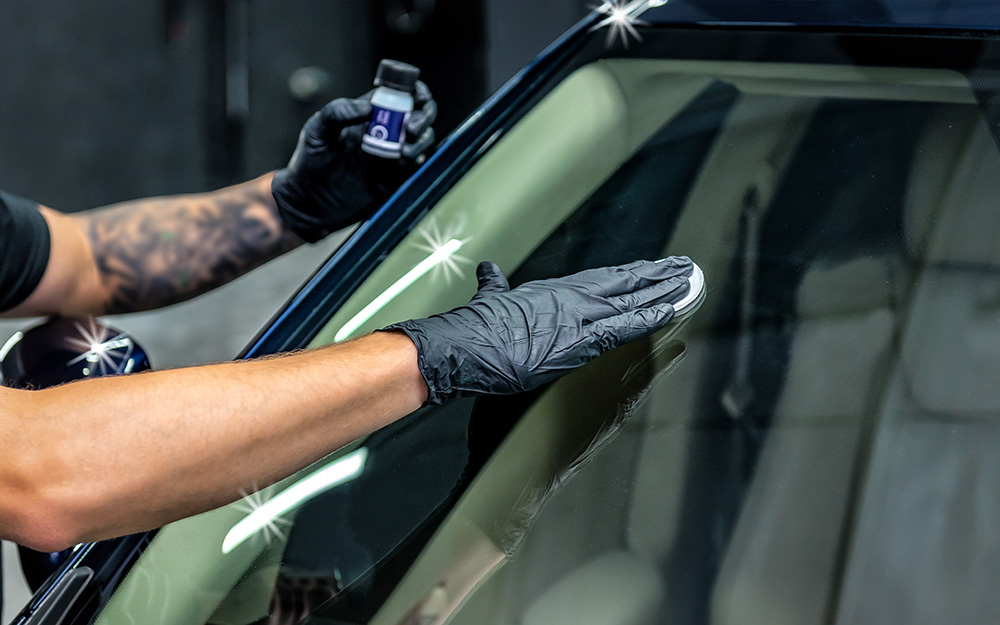Posted on 4/4/2025

2 Ways to Instantly Improve Visibility and Safety This Spring Posted April 3, 2025 As winter fades, your vehicle may be showing signs of seasonal wear—especially when it comes to safety-critical components like wipers and headlights. The combination of snow, road salt, and low temperatures takes a toll, often leaving behind streaky glass, foggy headlights, and grime-coated windshields. With spring rains on the way and longer daylight hours returning, now is the ideal time to restore both clarity and confidence behind the wheel. At Tom’s Auto Center, we offer two fast, affordable services that instantly enhance your visibility and driving safety—all in one quick visit. 1. See the Road Clearly – Premium Wiper Service + Hydrophobic Windshield Coating What Winter Left Behind: Winter’s harsh conditions cause major wear on wiper blades. Exposure to salt and snow leads to: Wipers that streak or skip across the windshield Reduced visibility in rain ... read more
Posted on 3/28/2025

With gas prices constantly fluctuating, finding ways to save at the pump is always a win. But that doesn’t mean you need to drive like a hyper-miler or drastically change your habits. In fact, many of the best ways to save on fuel are surprisingly simple—and often overlooked. Whether you’re commuting daily or just taking occasional trips, small adjustments in how you drive and care for your car can add up to real savings over time. Keep Your Tires Properly Inflated One of the easiest ways to save on gas? Make sure your tires have the right air pressure. Underinflated tires increase rolling resistance, which makes your engine work harder and burn more fuel. It doesn’t take a special trip to the shop—just check your tire pressure monthly and top them off as needed. Your owner’s manual or the sticker inside your door frame will tell you the rig ... read more
Posted on 3/10/2025
Winter has taken a toll on your vehicle, with road salt, freezing temperatures, and harsh conditions causing wear and tear. Now that spring is here in Wisconsin, it's the perfect time to refresh and protect your car for the warmer months ahead. At Tom's Auto, we offer professional spring car care services to ensure your vehicle is road-trip ready, whether you're planning a Spring Break adventure or just enjoying the sunny days ahead. Here are five ways to give your car a little extra love this spring—let us help you get the job done! 1. Recharge After Winter – Battery & Charging System Check Cold weather can weaken your car's battery, and spring is a great time to ensure it's still in top condition before summer road trips. A weak battery can leave you stranded, so don’t wait for the first hot day to find out it needs replacing. How we can help: ✅ ... read more
Posted on 2/28/2025

Power steering makes driving much easier by allowing you to turn the wheel with minimal effort. But like any other system in your car, power steering components wear out over time—especially the power steering pump. When the pump starts failing, you will notice warning signs that indicate trouble ahead. Catching the problem early can prevent complete steering failure and costly repairs. What Does the Power Steering Pump Do The power steering pump plays a crucial role in assisting with steering by using hydraulic pressure to make turning the wheel easier. It circulates power steering fluid through the system, ensuring that your steering responds smoothly when you turn. If the pump begins to fail, you may experience increased steering effort, noises, or even a complete loss of power assist. Signs Your Power Steering Pump Is Failing1. Whining or Groaning Noises When Turning One of the first signs of a failing power steering pum ... read more
Posted on 1/31/2025

Driving has come a long way from being a fully manual task. Thanks to cutting-edge advancements in automotive technology, cars are now equipped with features that not only assist drivers but also enhance overall safety. Among these technologies, Advanced Driver Assistance Systems (ADAS) have become a game changer. But what exactly is ADAS, and how does it make our roads safer? Let’s look into this innovative system and its role in modern driving. ADAS: The Basics ADAS stands for Advanced Driver Assistance Systems, a collection of electronic technologies designed to assist drivers in various aspects of driving. From warning about potential hazards to actively taking control in emergency situations, these systems are built to reduce human error—the leading cause of road accidents. What sets ADAS apart is its ability to integrate sensors, cameras, radars, and software to monitor a vehicle’s surroundings and interpret data in real time. This combinatio ... read more